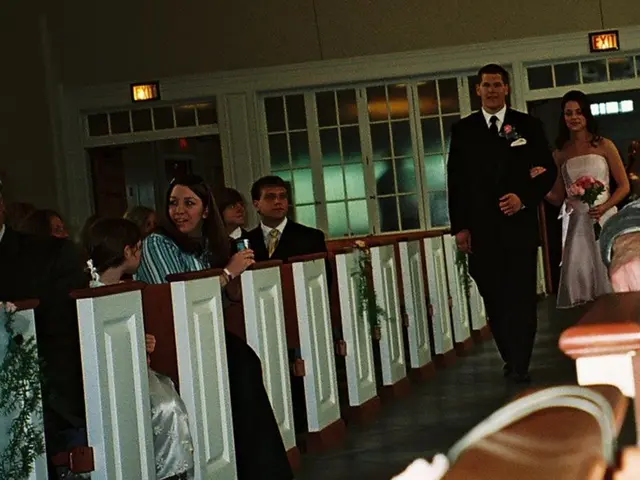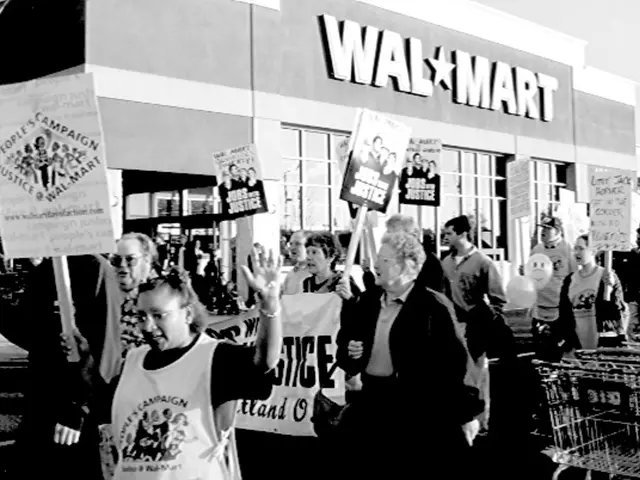WWII Memories: Interview with Uwe Timm – Countdown to Zero Hour
"GIs arrived and knocked at the door"
Uwe Timm, a 85-year-old author, shares memories of World War II and the post-Nazi era in Germany, delving into his works that focus on these themes.
ntv.de: Mr. Timm, you were a child in Hamburg during WWII. Can you recall your experiences?
Timm: Clear memories include being pushed in a pram through Osterstraße, as trees were burning on both sides. The air was filled with small flames of burning curtains. Another vivid recollection is being told not to look at the street, as it was filled with dead bodies. Our apartment was destroyed in a bombing raid in 1943. Initially, my father, who was in the Luftwaffe, was on vacation, but he knew of the attack from the radio news and evacuated people early. When a firebomb fell on our house, we lost everything instantly.
So, what do you remember about the war’s end?
In Coburg, we had been evacuated to relatives. German soldiers were still digging trenches by the Itz river when the Americans arrived. I remember falling into one of the trenches and not being able to get out, until a soldier rescued me. The Americans simply moved the circus wagon barricade with their tanks. There was also shooting, but then the GIs stormed the place.
Did you know black people before the Americans arrived?
No, they were the first. At first, we were afraid of them due to rumors we'd heard. But the GIs turned out to be polite and respectful. The adults, especially men, who had been aggressive earlier, suddenly became submissive and admitted they knew nothing or had little involvement with the Nazi atrocities.
What was liberation like?
People were frightened and changed their behavior. Some had to give up their apartments to American soldiers, and there was looting. Women were afraid to go into the woods for fear of encountering criminals. Food, such as canned goods, was taken from military camps. The old order was gradually fading away, but the new one had not yet been established.
Politics – From "I Have Looked into the Abyss" to "Never Again War"Timm wrote several pieces that delve into the death camps, how people reacted to the Americans, and the post-war reconstruction.
The Transitional Period – Zero Hour or Not?
While the term "Zero Hour" emphasizes the complete dissolution of the old order and the emergence of the new, Timm argues that it was not exactly zero. The reconstruction of relationships resembled older patterns. The denazification process became more relaxed due to the growing East-West conflict, and judges from the Nazi era returned to power.
World War II’s Legacy – A Brighter Future under a Different SkyThe weather during the Liberation was unusually warm, which was a blessing as many were on the run. Uncertainty was in the air, but there was hope for a better future.
Uwe Timm – A Voice of ChangeThrough his works, Timm continues to reflect on the dark days of the Nazi regime, the future of Germany, and the importance of upholding the principle "Never Again War."
- Uwe Timm writes about the death camps, how people reacted to the Americans, and post-war reconstruction in his works, delving into the legacy of World War II.
- In his interview, Uwe Timm recalls his experiences during WWII, sharing memories of being pushed in a pram through Osterstraße as trees burned, being told not to look at the street filled with dead bodies, and losing everything in a bombing raid in 1943.
- The liberation brought fear and changes in behavior among the people, with some having to give up their apartments to American soldiers and women being afraid to go into the woods.
- Uwe Timm argues that the transition period after the war, often referred to as "Zero Hour," was not exactly zero, as the reconstruction of relationships resembled older patterns, and the denazification process became more relaxed due to the growing East-West conflict, allowing judges from the Nazi era to return to power.









